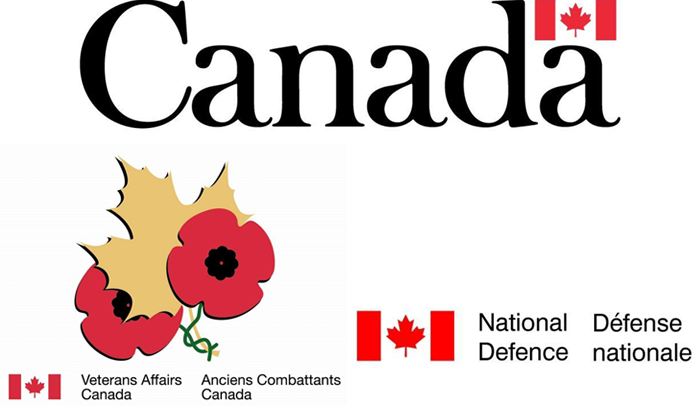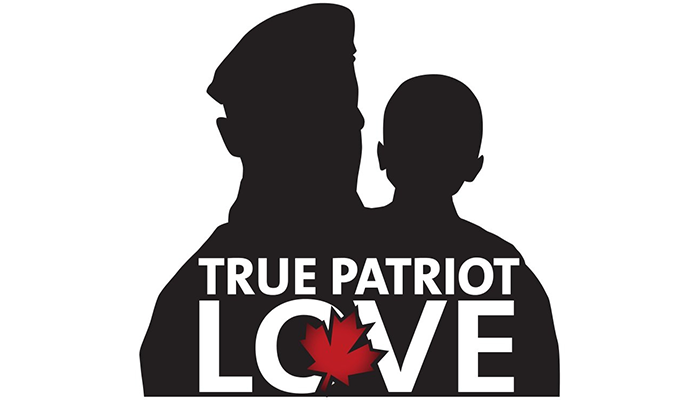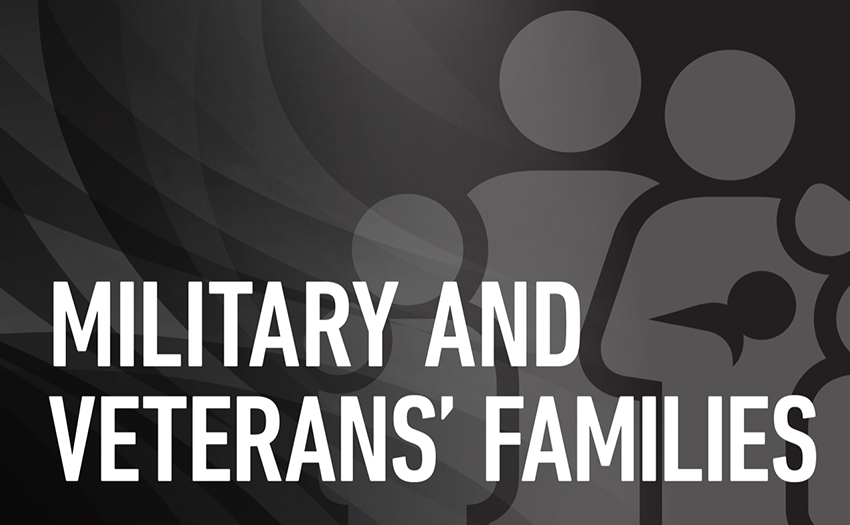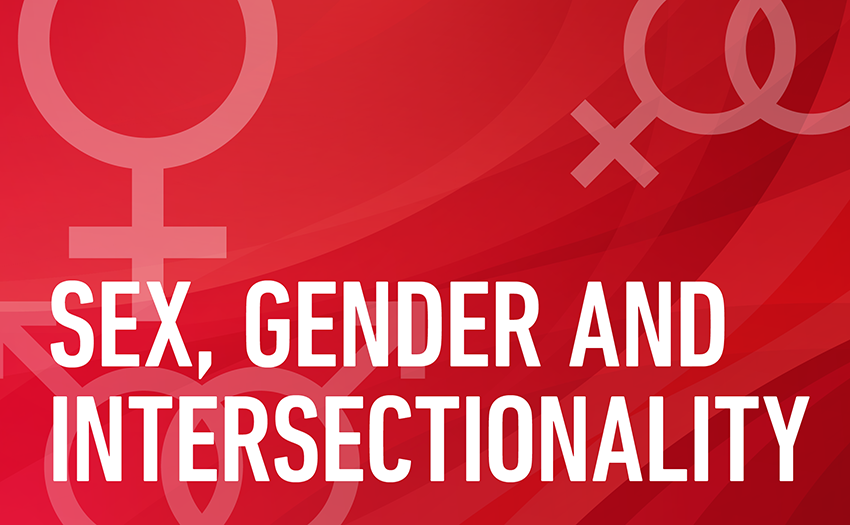Research
At CIMVHR, research impact means helping to generate new knowledge that can improve well-being and sharing it with knowledge users who make a tangible difference in the lives of serving military, Veterans, public safety personnel, and their families and communities. In the role of research intermediary, identifying areas of need and bringing the experts, knowledge users and funders together, CIMVHR fosters a network of connections between key research areas and specific populations. This past year, CIMVHR ’s stakeholders generated research with global impact, including cutting-edge scientific studies developed during, and about the effects of the COVID-19 pandemic.
This new knowledge, highlighted in this year’s report, falls into the following four research areas:
Biopsychosocial Approaches to Health and Well-being
Research that tries to better understand the complexities of military life has led to an increase in use of biopsychosocial approaches to the well-being of serving military, Veterans, and their families. The biopsychosocial approach looks at the whole person – their socio-economic and health status, their level of functioning and satisfaction in life, and their interactions with others – to inform new social and health care programs.
This year, two studies in particular showcase the biopsychosocial approach to the well-being of serving military members and Veterans.
Research Highlight 1
Innovative Delivery of the Road to Mental Readiness Program - Recommendations on how to complement current Road to Mental Readiness Program in operational contexts. (Task 52)
Principal Investigator

Anthony Nazarov, PhD
Postdoctoral Associate, University of Western Ontario, The MacDonald Franklin OSI Research Centre, and the Lawson Health Research Institute
Funding Sponsor
Defence Research and Development Canada (DRDC)Lay Summary
Within the last two decades, initiatives such as the Road to Mental Resilience (R2MR) Program have been implemented by the Canadian Armed Forces (CAF) with the intention to optimize the mental health and psychological resilience of military members. Currently, little is known about CAF members’ perceptions of, and satisfaction with, mental health and resilience training. Understanding how military members perceive mental health and resilience training, including subjective feedback for improvements, can further inform decision-making related to program development. Research conducted as part of Task 52 identifies CAF members’ perceived gaps in the existing training program and discusses recommendations to enhance the training experience.
Research Highlight 2
Literature review on the impacts of COVID-19 on well-being, as well as an integrated knowledge translation and exchange (iKTE) process on implications for the Veteran population and Veterans Affairs Canada (VAC) programs and services. (Task 55)
Principal Investigator

William Montelpare, PhD
Professor, and the Margaret and Wallace McCain Chair in Human Development and Health, CIMVHR Board Member,
University of Prince Edward Island
Research colleagues

Beibei Jia, PhD
Postdoctoral Fellow, Department of Health Management, Atlantic Veterinary College, University of Prince Edward Island

Tessa Casey, MSc
Research Coordinator, University of Prince Edward Island
Funding Sponsor
Veterans Affairs Canada (VAC)Lay Summary
The impacts of the COVID-19 pandemic are multifarious, and each community will face its own set of challenges during and after the pandemic. Challenges that existed before COVID-19 remain, and others have been exacerbated by the pandemic. Canada's Veterans and the organizations that serve them face extraordinary challenges because of the global pandemic. The goal of this scoping review was to examine and develop an understanding of the influence of the pandemic on the well-being of Canadian Veterans, and more specifically, to understand the emerging needs of the Canadian Veteran population as the pandemic continues to unfold and affect Veterans’ programs and services.
Mental health issues and economic impacts were two of the most consistent consequences of COVID-19 on Canadian Veterans. A population health approach was recommended to address COVID-19 impacts on the well-being of Canadian Veterans. Likewise, the specific impact of COVID-19 relative to age, gender, ethnic groups, and jurisdiction were measured. Female Veterans and Indigenous groups may potentially be experiencing greater health effects. Veterans Affairs Canada (VAC) has taken responsive measures to address the emerging needs of Canadian Veterans regarding financial support programs and service improvement.
Rehabilitation for Physical Injuries
Inclusive research methods – such as “patient engagement” — help to improve well-being by informing the development of healthcare programs that are responsive to the preferences, values and needs of the people they will support.
This year, CIMVHR is highlighting two studies on the rehabilitation of physical injuries that engage with military personnel around their experiences with disabilities, and that explore potential health programming that can be delivered online, reaching people who are social distancing or live in rural and remote areas.
Research Highlight 1
This study looks at the implementation of home-based intensive exercise interventions, supervised remotely, to improve balance, mobility and physical activity for military who have suffered a moderate or severe traumatic brain injury.
Authors

Heidi Sveistrup, PhD
Professor of Rehabilitation Sciences, University of Ottawa and the Bruyère Research Institute

Jennifer O’Neil, PT, PhD
Rehabilitation Sciences, University of Ottawa and the Bruyère Research Institute
Funding Sponsor
True Patriot Love FoundationLay Summary
We know that physical activity is good for our overall health and that being physically inactive has negative impacts, which can be worse for individuals who have suffered a traumatic brain injury (TBI). Walking every day helps with mood, cardiovascular fitness, balance, mobility, pain, and overall activity participation. Therapist supervision during exercise programs may increase motivation and support behavioural changes among patients. However, supervision is expensive and is often not accessible in rural communities.
Replacing in-person supervision with remote supervision may reduce costs and increase access to specialized exercise programs. We investigated whether supervision could be provided remotely, and if remote, were home-based exercise programs effective in improving physical activity, mobility, and balance.
We found that remote supervision was possible and effective for this population. Our data showed high adherence to the program, above-average usability of the technology, and positive impact on functional mobility and dynamic balance for dyads (Veterans and/civilians living with the TBI and their family partners). Dyads were satisfied with the program and reported enjoying being in the comfort of their homes.
Our project shows potential in improving accessibility to physical rehabilitation no matter where the Canadian military or Veterans are located.
Research Highlight 2
Literature Review: “Experiences of Persons with Disabilities in the Military.” (Task 51)
Principal Investigator

Antonio Miguel-Cruz, DrSc
Professor, Faculty of Rehabilitation Medicine & Occupational Therapy, University of Alberta
Funding Sponsor
Director Research Personnel and Family Support (DRPFS)Lay Summary
This review addresses the need to recognize and learn about the experiences of military members who have impairments and disabilities related to their work lives. It also addresses the need to identify ways to conduct research with military members with impairments and disabilities, a group that may feel marginalized.
We found 177 impairments that affected military members’ work lives. The most common were general mental health problems, military sexual trauma, post-traumatic stress disorder (PTSD), and depressive episodes. Often, military members described day-to-day issues they faced due to the unique nature of military culture, structure and routines. Some issues were due to personal factors, such as their own negative beliefs about having an impairment or disability, or when negative attitudes held by others became internalized, resulting in self-stigma.
Conversely, some of the issues were associated with the institutional environment, most often related to services, systems and policies in the military (for example, concerns about promotion and career progression, or concerns about confidentiality). Other issues were related to the social/cultural environment (such as negative attitudes held by other military members and lack of social support from unit members).
We found 67 accommodations and supports for members of the military and paramilitary who have impairments and disabilities; however, only seven were workplace accommodations. The impairment most addressed by workplace accommodations and supports was PTSD, but overall, workplace accommodations and supports are not well-supported in the research.
Methods of how to best carry out research when working with marginalized groups include qualitative case studies, interpretive phenomenological analysis, net-nography/Internet ethnography, narrative life story interviews, narrative storytelling, and auto-ethnography. More research is needed about the effectiveness of existing workplace accommodations for military and paramilitary members with impairments and disabilities. A clearer definition of workplace accommodation for military organizations and how to implement accommodations in the military culture are also needed.
Military and Veterans’ Families
This research area looks at the health and well-being of serving military and Veterans’ families, including their experiences using health and social services. This past February, CIMVHR hosted a symposium called Military and Veterans Family Health Research: Setting the Stage for the Next Chapter. Two studies during the reporting period focused on the experiences of military and Veteran family members.
Research Highlight 1
Exploring the experience of parents of ill and injured Veterans
Principal Investigator

Heidi Cramm, PhD, OT Reg. (Ont.)
Associate Professor, School of Rehabilitation Therapy, Queen’s University, and Research Advisor, Military and Veteran Families, CIMVHR
Funding Sponsor
True Patriot Love FoundationLay Summary
Programs for military families are often targeted towards the needs of families with young children, while those intended to benefit Veteran families are geared towards the aging Veteran. For those releasing from the Canadian Armed Forces (CAF) due to illness or injury, aging parents may need to step in to support their adult children. This qualitative study explored the experiences of parents of CAF Veterans living with illness or injury associated with military service. Fifteen parents and parents-in-law of Veterans were interviewed, all of whom had symptoms of post-traumatic stress disorder and/or moral injury linked directly to events and stressors during military deployments. Participants reported ongoing commitment to their adult children and their recovery, taking on additional roles and instrumental tasks. Parents’ efforts came at great personal, financial and occupational costs, yet they felt forgotten and marginalized despite their crucial roles in Veteran recovery. Having raised their children, and then continuing to be responsible for them in their recovery and transition, participants saw themselves as part of the military unit whose role and rights should be formally acknowledged. Based on the findings, programs and policies could be developed to create a family-centred circle of care, which would provide a clearer path to navigate the system, and would enable access to peer support, family psychoeducation, couples and/or family therapy, and a broader array of caregiver benefits.
Research Highlight 2
The Experiences of Adult Children of Canadian Armed Forces Veterans Serving between the Korean War and the Gulf War
Principal Investigator

Deborah Norris, PhD
Professor, Family Studies and Gerontology, Mount Saint Vincent University, CIMVHR Fellow, and Affiliated Member of the Centre for Social Innovation and Community Engagement in Military Affairs
All Authors
Norris, Deborah, PhD; Cramm, Heidi, PhD; Cox, Marilyn, MFSGN; Mahar, Alyson, PhD
Funding Sponsor
True Patriot Love FoundationLay Summary
The demands of mobility, separation and risk enhance capabilities and foster resiliency for some military children. It is not known, however, if capabilities developed during military childhoods are sustained through adulthood; similarly, the adaptive responses facilitating resiliency are poorly understood. Retrospective accounts of the childhood experiences of an understudied cohort, the adult children of Canadian Armed Forces (CAF) Veterans who served from the Korean War through to the Gulf War, gleaned through this exploratory study, offer insight into how these experiences shaped adult lives.
Twenty-three adult children meeting the inclusion criteria were recruited for this study through key informants and social media. Participants described their adaptive responses to the demands of separation and relocation, disruptions in schooling, mental health issues, and abuse within the families of origin. Meaning-making was instrumental in adapting to the normative and non-normative demands of military life, enhancing empathy, social skills, and a commitment to public service in adulthood.
Family cohesion and communication were capabilities that enhanced resiliency in these families. The culture of community prominent within base housing of that era was identified as a significant resource, instilling a sense of identity and belonging that remains meaningful for participants to the present day. Implications for contemporary military family support policies and programs were shared by participants.
Sex, Gender and Intersectionality
Gender-blind, or gender-neutral, research and policy can have unintended negative social and health-related outcomes. There has been a collaborative effort internationally to integrate a sex and gender perspective into all military-related research and policy. Researchers use intersectionality as a lens in the collection of data and analysis to study overlapping social positions, including sex and gender, as well as other important factors related to the identities of military personnel and Veterans, such as age, marital status, race, Indigeneity, ethnicity, rank, and transitions related to release from active service.
Research Highlight 1
Literature Review on "Military to Civilian Transition: The Importance of GBA+ for the Canadian Armed Forces." (Task 50)
Principal Investigator

Maya Eichler, PhD
Associate Professor in Political and Canadian Studies and Women's Studies, Canada Research in Chair of Social Innovation and Community Engagement, and Director of the Centre for Social Innovation and Community Engagement in Military Affairs, Mount Saint Vincent University, Halifax, Nova Scotia
Funding Sponsor
Director General Military Personnel Research and Analysis (DGMPRA)Lay Summary
When Canadian military members release from service, they do not all share the same experiences, nor do they face the same challenges. Therefore, it is important to shed light on how experiences and outcomes for Veterans differ based on sex, gender, and intersecting factors such as sexuality, race or Indigeneity.
Our team conducted a review of existing research for the Canadian Armed Forces Transition Group on the importance of gender-based analysis plus (GBA+) for military-to-civilian transition in Canada. There is a lack of Canadian research on the topic, but there are extensive international studies and government sources that provide insight into the potential challenges encountered by women, LGBTQ+, Black, People of Colour, and Indigenous members who are medically or voluntarily releasing or facing retirement. Potential challenges include increased vulnerabilities and risks across the various domains of well-being. These manifest in health outcomes, complex trauma histories, employment and housing insecurities, lack of tailored services, social disconnection, and more.
While the vulnerabilities and risks are experienced at the individual (and sometimes familial) level, they are often caused by systemic and structural issues, such as histories of discrimination and marginalization, sexual and gender-based violence, lack of adequate equipment and services, and more. These vulnerabilities and risks are further exacerbated by societal inequalities and civilian lack of knowledge about historically underrepresented Veterans.
We argue that developing policies, programs and supports that result in equitable transition outcomes for all Veterans requires being attentive to sex and gender, and intersecting factors such as sexuality, race, Indigeneity, and more. We recommend that transition programs and policies be tailored to the needs of specific Veteran subpopulations, such as women Veterans; that government and government-funded service providers be educated about the unique experiences and needs of non-traditional Veterans and trained in appropriate ways to support them; and for a commitment to further study the unique experiences and needs of historically underrepresented Veterans in Canada. These recommendations should be adopted in consultation with members of the various subpopulations they intend to serve.
Research Funders

Public Services and Procurement Canada (PSPC)
In 2012, CIMVHR entered into an agreement with Public Services and Procurement Canada (PSPC) to find specialized teams to conduct research that would meet the needs of Defence Research and Development Canada, Canadian Forces Health Services Group and Veterans Affairs Canada. CIMVHR, along with these government organizations, are interested in optimizing the health and well-being of Canadian military personnel, Veterans and their families, by harnessing and mobilizing a national capacity for high-impact research, knowledge creation and knowledge exchange. Eight projects through the PSPC agreement were completed this year.

True Patriot Love Foundation
True Patriot Love Foundation is a national charity dedicated to providing essential support and resources to Canadian military members, Veterans and their families. The Foundation believes in the importance of research in establishing evidence-based programs, while increasing access to programs and treatments dedicated to advancing the health and well-being of military personnel, Veterans and their families.
Through a 10-year partnership with CIMVHR, True Patriot Love Foundation is supporting cutting-edge research projects and program evaluations across Canada. Together, they are working to strengthen knowledge transfer between CIMVHR’s established network of academia, government supporters and other stakeholders to ensure that evidence-based research can be rapidly translated into practice, policies and programs.
This year, four projects were completed, and another new project was funded through the True Patriot Love Foundation, focusing on priority research areas such as military family health, military to civilian transition, mental and physical health, health system utilization, diversity within the Canadian Armed Forces, and chronic pain.

IBM Canada Ltd.
The establishment of the Advanced Analytics Initiative was made possible through the requirement for Babcock International and IBM to meet Industrial and Technological Benefits (ITB) credits for Canadian defence contracts. Through joint efforts with CIMVHR, the Advanced Analytics Initiative has funded leading research focused on improving the health of Canadian military personnel, Veterans and their families. The research supported through this initiative leverages “big data” analytics, machine learning and other approaches to health solutions. In 2021, CIMVHR entered into a Memorandum of Understanding with the Canadian Primary Care Sentinel Surveillance Network (CPCSSN) to support the transfer of the Safe Haven/Safe Research Environment, building research capacity to improve the well-being of Canada’s military, Veterans and their families.
Many projects are ongoing. To view all CIMVHR Funding Awards: cimvhr.ca/funding-awards




